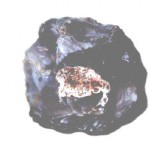Harding is a small and chirpy Australian, from Brisbane originally,
哈丁個(gè)子不高,性情開(kāi)朗,出生于澳大利亞布里斯班。
with the rare knack for being amused and earnest at the same time.
她既辦事認(rèn)真,又不乏幽默,這是不大多見(jiàn)的。
"Don't know," she said at once, grinning, when I asked her how people in Oxfordshire harbored sequences of betaglobin that shouldn't be there.
我問(wèn)她牛津郡的人為什么會(huì)出現(xiàn)這種本不該具有的球蛋白基因。“我不知道,”她不假思索地微笑著回答說(shuō),
"On the whole," she went on more somberly, "the genetic record supports the out-of-Africa hypothesis.
“基因記錄總的來(lái)說(shuō)支持‘走出非洲’的假說(shuō)。”她帶著比較嚴(yán)肅的神色接著說(shuō),
But then you find these anomalous clusters, which most geneticists prefer not to talk about.
“但是你接著發(fā)現(xiàn)了這些特例,對(duì)此大多數(shù)遺傳學(xué)家不愿意提及。
There's huge amounts of information that would be available to us if only we could understand it, but we don't yet.
即使我們能弄明白這一切,我們還需要收集大量的信息,但是我們還沒(méi)有做到,

We've barely begun.
我們才剛剮開(kāi)始。
" She refused to be drawn out on what the existence of Asian-origin genes in Oxfordshire tells us other than that the situation is clearly complicated. "
她只是說(shuō),情況顯然很復(fù)雜,不愿意就亞洲古人類(lèi)的基因出現(xiàn)在牛津郡發(fā)表意見(jiàn)。
All we can say at this stage is that it is very untidy and we don't really know why."
現(xiàn)階段我們只能說(shuō),這非常不符合常規(guī),但是我們確實(shí)不知道為什么會(huì)這樣。
At the time of our meeting, in early 2002, another Oxford scientist named Bryan Sykes had just produced a popular book called The Seven Daughters of Eve in which,
我們會(huì)見(jiàn)的時(shí)間是在2002年初,牛津大學(xué)另一位名為布萊恩.塞克斯的科學(xué)家不久前剛剛出版了一本非常受歡迎的書(shū)《夏娃的七個(gè)女兒》。
using studies of mitochondrial DNA, he had claimed to be able to trace nearly all living Europeans back to a founding population of just seven women
他在書(shū)中借用了線粒體DNA的研究成果,宣稱(chēng)他可以將幾乎所有在世的歐洲人的祖先追溯到七個(gè)女人
the daughters of Eve of the title—who lived between 10,000 and 45,000 years ago in the time known to science as the Paleolithic.
也就是夏娃的七個(gè)女兒。她們生活在4.5萬(wàn)年前到1萬(wàn)年前,也就是科學(xué)上所說(shuō)的舊石器時(shí)代。
To each of these women Sykes had given a name—Ursula, Xenia, Jasmine, and so on
塞克斯給這七個(gè)女人都取了名字——烏爾蘇拉、齊尼亞、杰斯敏等等,
and even a detailed personal history. ("Ursula was her mother's second child. The first had been taken by a leopard when he was only two... ")
并且擬就了一個(gè)詳細(xì)的個(gè)人家史。(“烏爾蘇拉是她母親的第二個(gè)孩子,第一個(gè)孩子在兩歲時(shí)被一只豹子叼走了……”)
When I asked Harding about the book, she smiled broadly but carefully,
當(dāng)我同哈丁說(shuō)起這本書(shū)時(shí),她先是爽朗而又不失分寸地笑了笑,
as if not quite certain where to go with her answer.
似乎對(duì)該怎樣回答這個(gè)問(wèn)題有些拿不定主意。
"Well, I suppose you must give him some credit for helping to popularize a difficult subject," she said and paused thoughtfully.
“這個(gè)……對(duì)于他將深?yuàn)W的學(xué)科普及化所作的努力,我認(rèn)為你應(yīng)該給他一些表?yè)P(yáng)。”她說(shuō),若有所思地停頓下來(lái),



